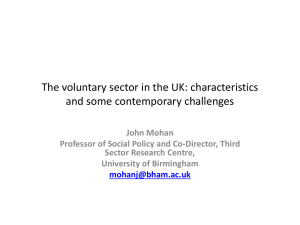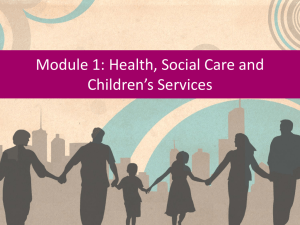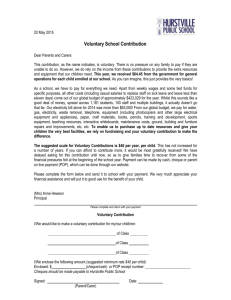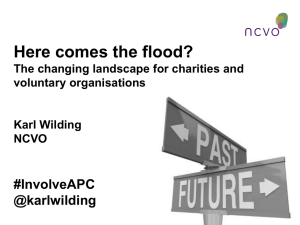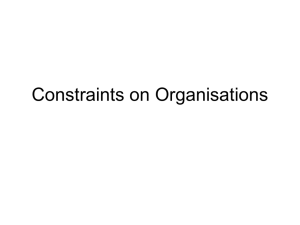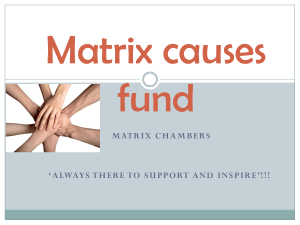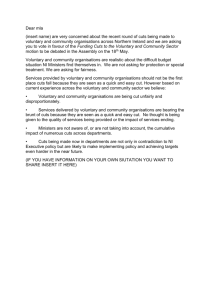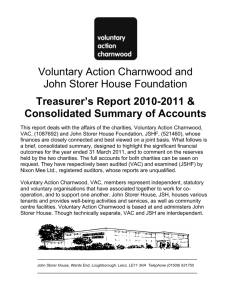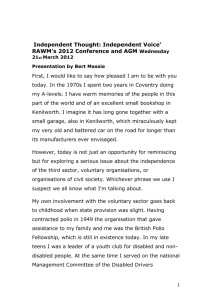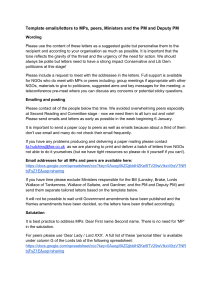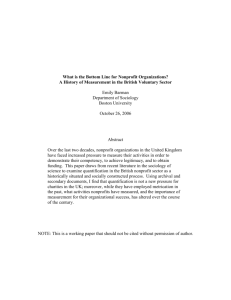here - The Panel on the Independence of the Voluntary Sector
advertisement
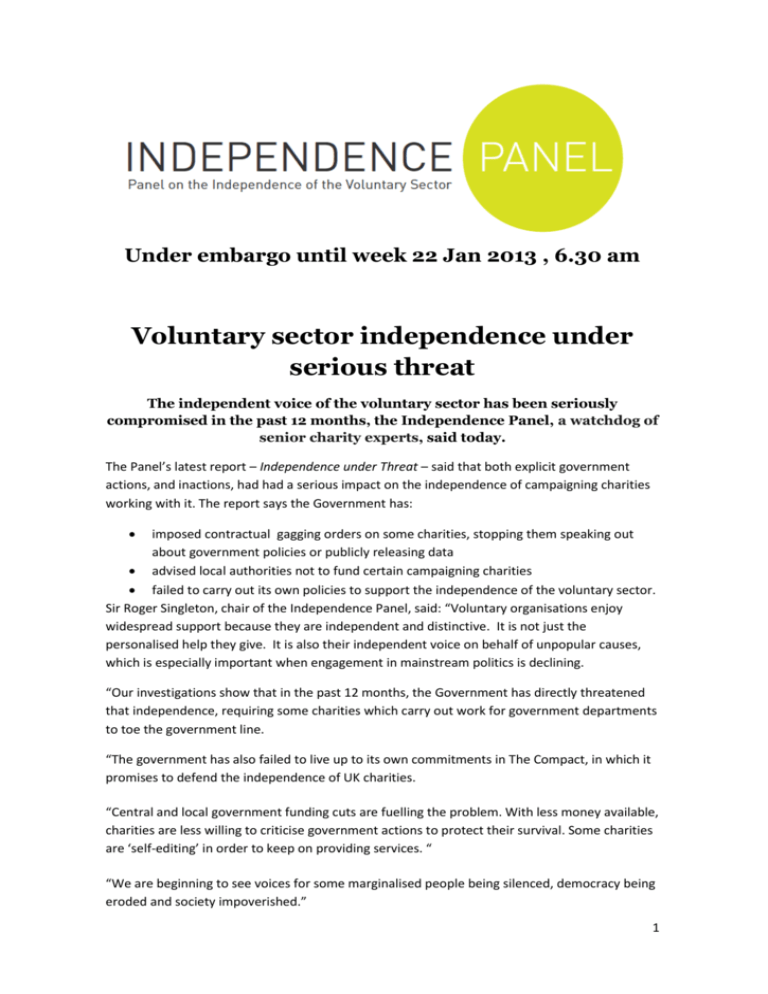
Under embargo until week 22 Jan 2013 , 6.30 am Voluntary sector independence under serious threat The independent voice of the voluntary sector has been seriously compromised in the past 12 months, the Independence Panel, a watchdog of senior charity experts, said today. The Panel’s latest report – Independence under Threat – said that both explicit government actions, and inactions, had had a serious impact on the independence of campaigning charities working with it. The report says the Government has: imposed contractual gagging orders on some charities, stopping them speaking out about government policies or publicly releasing data advised local authorities not to fund certain campaigning charities failed to carry out its own policies to support the independence of the voluntary sector. Sir Roger Singleton, chair of the Independence Panel, said: “Voluntary organisations enjoy widespread support because they are independent and distinctive. It is not just the personalised help they give. It is also their independent voice on behalf of unpopular causes, which is especially important when engagement in mainstream politics is declining. “Our investigations show that in the past 12 months, the Government has directly threatened that independence, requiring some charities which carry out work for government departments to toe the government line. “The government has also failed to live up to its own commitments in The Compact, in which it promises to defend the independence of UK charities. “Central and local government funding cuts are fuelling the problem. With less money available, charities are less willing to criticise government actions to protect their survival. Some charities are ‘self-editing’ in order to keep on providing services. “ “We are beginning to see voices for some marginalised people being silenced, democracy being eroded and society impoverished.” 1 The Panel’s conclusions are based on a wide range of evidence, including from charity leaders, who said that their independence was at risk and that they felt less able to speak out against government policies that adversely affected their clients because of the impact of contracts with central and local government. A Work Programme contract from the Department of Work and Pensions, for example, expressly forbids contracted organisations to make “any press announcements or publicise the Contract or its contents in any way.” The Panel also found that the role of campaigning charities is starting to be attacked more widely by central government. Last month (December 2012) the Department of Communities and Local Government issued guidance to local authorities advising them to stop funding socalled “fake charities” that “lobby and call for more state regulation and more state funding.” Last year, Save the Children UK was criticized in two national newspapers and by some Conservative MPs for campaigning for action to reduce child poverty in the UK, with allegations that it was being political. The Government has signed an agreement with the voluntary sector, known as The Compact, in which it commits to protect the independence of UK charities. But non compliance is widespread, the evidence set out in the report shows, and monitoring by central government is poor. Sir Roger said: “The sector as we know it is at risk, with the threat to its independence being greatest for organisations working with disadvantaged people, which often rely on state funding to maintain essential services. This should concern everyone who values the role of the voluntary sector in our society. “We know that the Government wants, in principle, to protect the independence of UK charities and that voluntary organisations also bear a responsibility to preserve it. But the Government is undermining that independence both directly and through its failure to act in support of the sector through effective regulation, funding and contracting arrangements.” PDFs of the full report - Independence under threat: the voluntary sector in 2013 – will be sent on request. - ENDS - Notes to editors 1. The Compact commits to "respect and uphold the independence of civil society organisations to deliver their mission, including their right to campaign, regardless of any relationship, financial or otherwise, that may exist." 2. The Panel was initiated and is funded by the Baring Foundation to ensure that 2 independence is seen as a top priority by the voluntary sector and those with whom it works and to make recommendations to ensure that it is not lost. This is the second of four annual assessments about the state of independence that it will produce. Its Chair is Sir Roger Singleton, CBE, appointed July 2012. Sir Roger waschief executive of Barnado¹s for 21 years, and was awarded a knighthood in 2005 for services to children. Dame Anne Owers, Chair of the IPCC, of Christian Aid and Clinks and former Chief Inspector of Prisons. Nicholas Deakin CBE, Emeritus Professor of Social Policy at Birmingham University and Chair of the Commission on the Future of the Voluntary Sector which reported in 1996. Andrew Hind CB, Editor of Charity Finance and Trustee of the Baring Foundation, formerly Chief Executive of the Charity Commission. Sir Bert Massie CBE, formerly Commissioner on the Compact and of the Disability Rights Commission. Julia Unwin CBE, Chief Executive of the Joseph Rowntree Foundation and an expert on voluntary sector independence. Louise Whitfield, Partner at Deighton Pierce Glynn and an expert in public law and judicial review. Nick Wilkie, former Chief Executive, London Youth. For more information and interviews, please contact: Dominic Nutt: e. dominic@dhacommunications.co.uk t. 07930757220 Patricia Hallam: e. trish@dhacommunications.co.uk t.020 7793 4035 3

